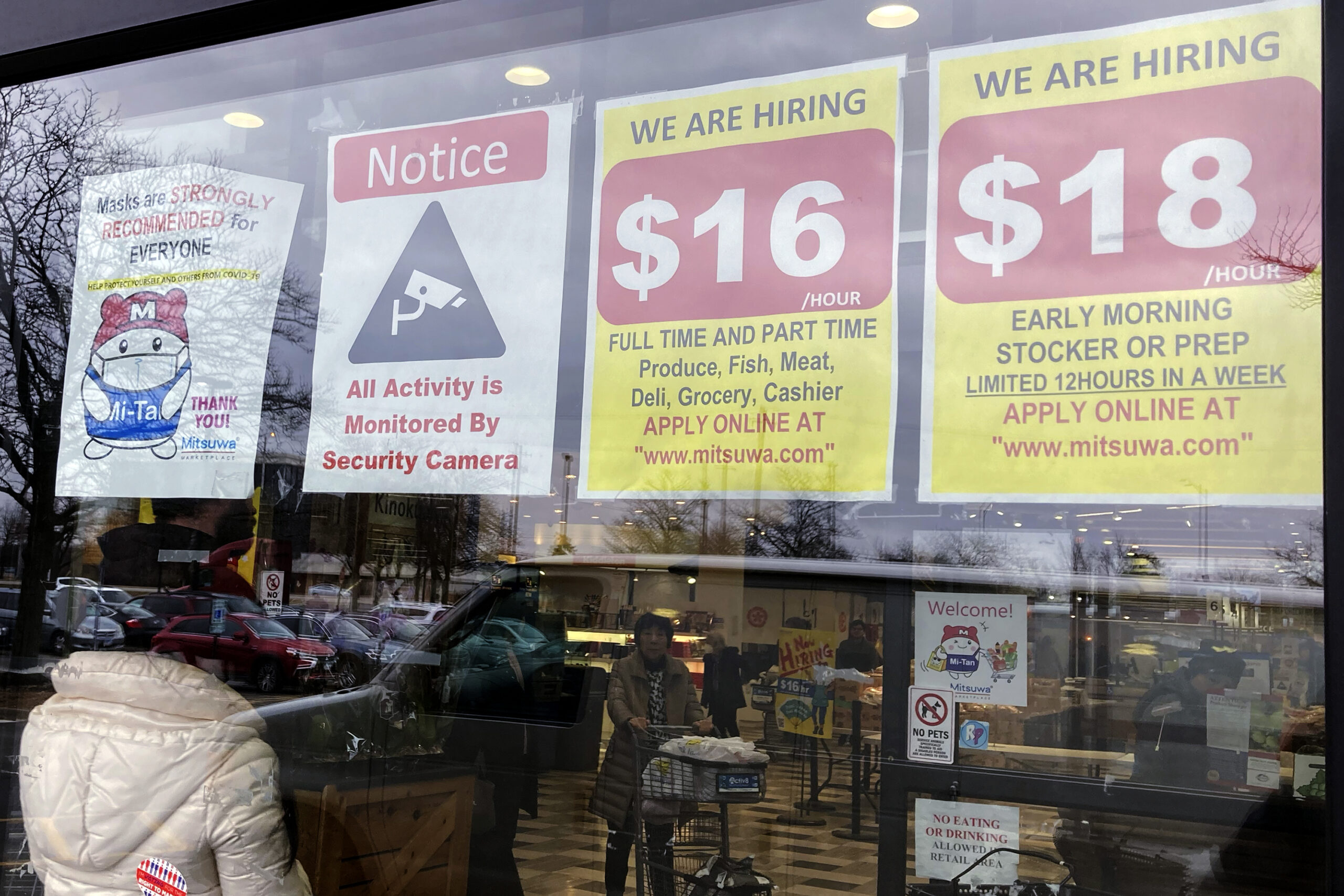Things to know for 2023 Black Women’s Equal Pay Day
This year, 2023 Black Women's Equal Pay Day coincides with the 60th anniversary of the Equal Pay Act and the March on Washington.
July 27, 2023, is Black Women’s Equal Pay Day. Each year, the day serves as a poignant reminder of Black women’s unyielding struggle for economic equity and freedom. Though the day is highlighted annually, Jocelyn Frye, president of the National Partnership for Women and Families, shares essential context surrounding the commemoration of Black Women’s Equal Pay Day.

“It is not a holiday and not a celebration,” said Frye in a July 24 press briefing. “It is a reminder of how far Black women have put the work into the new year, 2023, in order to simply catch up to what white men earn during the previous year.”
The fight for equal pay remains a longstanding battle in this country. Despite many strides made in federal and local legislation over the years, Black women remain among those at the bottom of the totem pole (alongside Latinas and Indigenous women, who earn even less). Studies show that, to this day, full-time Black female employees make approximately 67 cents to every dollar earned by white, non-Latinx male employees, with steeper disparities in the South and for part-time workers. That wage discrepancy adds up significantly by the end of the year, causing women to lose millions of dollars in income over the course of a lifetime.
“The lost wages are resources that could support families, bolster small businesses, pay off student loans, and secure retirement. This wage gap is deeply embedded in our economic system,” said Melanie Campbell, president and CEO of the National Coalition on Black Civic Participation and national convenor of the Black Women’s Roundtable. “The wage gap for women of color is but one indicator of a greater structural imbalance that requires leaders from government, nonprofit, corporate, and community sectors to address this issue collectively.”
This year’s commemoration of Black Women’s Equal Pay Day is particularly significant as it coincides with the 60th anniversaries of the Equal Pay Act and the March on Washington. As the nation faces attacks on voting rights, reproductive rights, LGBTQ+ rights, and Black history in education, Campbell notes that society is at an inflection point in which “we’re going to move forward, or we’re going to move backward.”
In an effort to move the needle toward equal pay for Black women, representatives from the National Partnership for Women & Families, the National Coalition on Black Civic Participation, the National Women’s Law Center, Equal Rights Advocates, Equal Pay Today, and the Black Women’s Roundtable are working together to find policy solutions to close the wage gap.
However, to fully understand their policy suggestions, one must understand the personal impacts of the wage gap on Black women. The disparities in Black women’s paychecks trickle down to their communities, families, and, ultimately, their children. According to Emily Martin, the vice president of education and workplace balance at the National Women’s Law Center, the 33-cent loss that Black women experience adds up over a lifetime.
“Black women who work full-time year-round typically lose well over $22,000 each year to the wage gap. And if we include part-time and part-year workers in the comparison, those losses are even larger,” said Martin. “The money that Black women lose to the wage gap each year could pay for nine months of a family’s groceries and eight months of childcare and six months of rent. Over the course of a 40-year career, a Black woman starting out today stands to lose close to a million dollars, well over $900,000, if we don’t close the gap.”
Similarly, Noreen Farrell, the executive director of Equal Rights Advocates, reports Black families are rightfully concerned about how income inequality is compounding debt, the persistent lack of affordable childcare, and job insecurity as many are forced out due to a lack of paid leave. So much so, Black women reportedly shared that “even though they’re working full time their entire lives, they’re worried they’re not going to have enough savings to bury themselves if they die. They’re worried about that kind of debt for their families,” said Farrell.
“Even though Congress has not passed a single pay equity law in the past ten years, 47 states have passed 73 new, stronger pay equity laws in the country, said Farrell. “But as that’s happening, there’s also been a pushback in other states that is very concerning.”
In southern states like Mississippi, Black women experience an exceptional amount of wage discrimination compared to Black women in other states.
“When we talk about Mississippi, we’re talking about women making 56 cents on the dollar,” said Cassandra Welchlin, the executive director and co-convener of the Mississippi Black Women’s Roundtable. “For a woman to retire here, she would have to retire at age 91 to catch up to the wages that a white male made when he retired at 65.”
According to Welchlin, Mississippi’s 2021 Equal Pay Act actually codified discrimination into the law. Welchin explains the bill also gives employers the right to discriminate based on salary history and employment gaps.
“If you are held to your prior salary, you are effectively forcing Black women to be stuck with that discriminatory pay going forward,” said Frye. “And so it stands to reason that if you’re moving to a new opportunity, you should be paid what the position is worth, not what somebody else may have paid you, particularly if they were doing so in a discriminatory fashion.”
“Employers are basically saying to employees, ‘We can’t give you increased wages because you’ve had so many gaps in your employment,'” Welchin added, noting, “Well, she’s a caregiver for her family.”
Despite often being primary caregivers and breadwinners in their families, Black women’s educational attainment has continued to soar; four times more Black women received a bachelor’s degree in 2021 than in 1977. Nevertheless, Martin revealed Black women are still paid less than non-Hispanic white men at similar and lesser education levels. Similarly, the National Women’s Law Center found “Black women are starkly overrepresented” in the 40 lowest-paying jobs compared to their white counterparts.
Ultimately, the biggest and most effective solution would be federal legislation. As Campbell noted, Black people have historically needed federal legislation to push local government officials to follow the pursuits for change. Ultimately, this collective of women is working together in hopes of sparking “good trouble” that drives women, particularly Black women, to be paid their worth.
“Our calls to action include the passage of the Paycheck Fairness Act, which would modernize and strengthen the Equal Pay Act of 1963. To hold employers accountable for pay discrimination, and establish pay, paid family and medical leave to support women’s work-life balance,” said Campbell. “We must also advocate for Black women to benefit from infrastructure, manufacture, and environmental resources made possible by the Biden-Harris administration. Policies like raising the minimum wage, investing in good job training, and supporting Black women entrepreneurs are crucial steps toward ending this injustice.”
As we prepare for another major election year, educating oneself on current affairs and voting in national and state elections is paramount in forging a path toward positive change and equal wages. Ultimately, as Farrell highlighted, Black Women’s Equal Pay Day is about more than a paycheck. It’s about radically changing the future.
“As we spread awareness about Black Women’s Equal Pay Day, let us not only honor our resilience,” said Campbell. “But also pledge to transform our realities.”

Haniyah Philogene is a multimedia storyteller and Lifestyle reporter covering all things culture. With a passion for digital media, she goes above and beyond to find new ways to tell and share stories.
TheGrio is FREE on your TV via Apple TV, Amazon Fire, Roku, and Android TV. TheGrio’s Black Podcast Network is free too. Download theGrio mobile apps today! Listen to ‘Writing Black‘ with Maiysha Kai.


